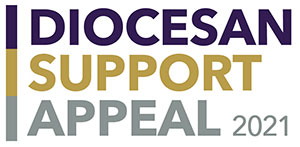CHARLOTTE — As the pandemic enters a second year, people’s feelings of anxiety, loneliness and depression are continuing, too. Catholic Charities Diocese of Charlotte’s mental health counseling program is available to help.
The agency has shifted from in-person to “tele-counseling” sessions to provide access to counseling services during these uncertain times – no matter where in the diocese people live.
“Few of us have been immune from the increased anxiety and stresses related to this unprecedented time of living under COVID-19,” said Dr. Gerard Carter, Catholic Charities’ executive director and CEO. “One of the things I am particularly proud of has been the incredible ability of our professional staff to pivot services during the past year in providing services using telehealth.”
“Tele-counseling” is offered through an easy-to-use and secure, HIPAA-compliant platform. People use their computer, mobile phone or tablet to have a one-on-one, confidential video session with a counselor. Each counseling session is scheduled via an email invitation with instructions on how and when to join.
The online sessions last about an hour and include the same quality and types of services as in-person counseling.
The service means more people across the diocese can access mental health counseling – not just if they live in Charlotte, Asheville or the Triad where Catholic Charities’ four counselors are located.
Counseling is available to individuals and couples, and bilingual counseling sessions are also available.
All mental health counseling staff possess a master’s degree in either psychology, counseling or social work and are licensed to provide behavioral health care in North Carolina.
The counselors meet each person where they are on their personal journey and help them address their challenges on a cognitive, emotional and behavioral level. Operating within the social teachings of the Catholic Church, they consistently provide professional, evidence-based therapeutic interventions that are most effective in treating behavioral health problems – ranging from relationship, stress and adjustment problems to acute and even chronic mental illness.
Services are provided on a sliding fee scale based on income. These fees and health insurance coverage, when possible, help cover program expenses.
“Once it became clear that this pandemic was not going to end within a few weeks, and that restrictions on face-to-face services were going to be a new reality,” Carter said, “our mental health counselors worked closely together with our administrative staff to explore and then adopt innovative ways to provide therapy in a way that permitted us to serve our clients while also affording the same confidentiality protection.”
Even after the pandemic is over, Carter said, the technology will continue enabling Catholic Charities counselors to reach people no matter where they live in the diocese, not just people living in Asheville, Charlotte and the Triad.
“The ability to access mental health services is no longer more difficult because you live in Lenoir, Boone, Murphy or Salisbury,” he said. “Access to a computer is what is needed to receive services from a licensed mental health professional at Catholic Charities.”
— Kimberly Bender, Online reporter
Find out more
Get more information about “telehealth” counseling offered through Catholic Charities online at www.ccdoc.org (select “Counseling” from the Services menu), or call 828-255-0146 in Asheville, 704-370-3227 in Charlotte, or 336-714-3204 in Greensboro or Winston-Salem.
Your DSA contributions at work
Some Catholic Charities Diocese of Charlotte programs are funded in part by contributions from the annual Diocesan Support Appeal.
Learn more about the DSA and how you can contribute at www.charlottediocese.org/dsa.


